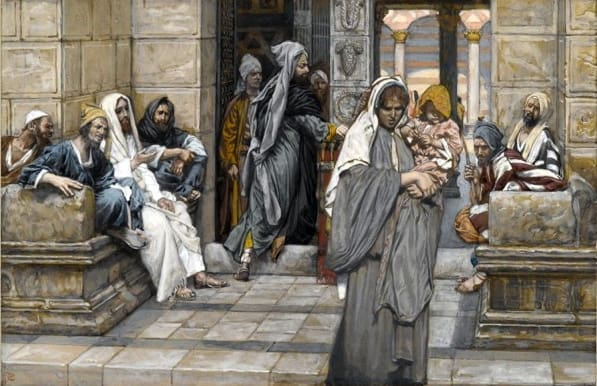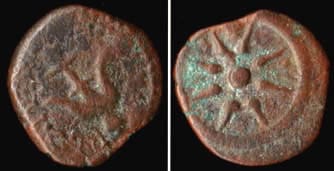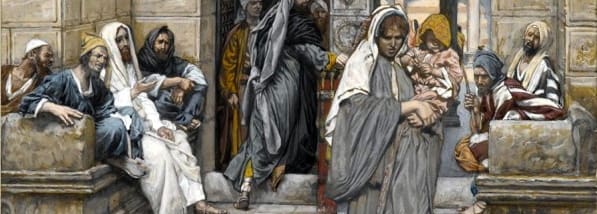Most everyone knows of the fabled emperor that paraded the streets in his undergarments, believing he was adorned in the finest of cloth that only the foolish could not see. Lest he admit being a fool, he feigned witnessing the imaginary fabric and played the biggest fool of all. The crowd, also fearing being taken for fools, participated in the charade. Not until a child, lacking guile and pretentiousness, announced that the Emperor wore only in his royal skivvies, was the truth made known.
This tale of the ages is a lesson that audiences always assume is for others. We are not so shallow as to get swept up in such a sham. Right? Perhaps.
Recently, I stumbled onto a couple of old Beanie Baby magazines with advice for investors on discerning a Beanie’s value. A once-upon-a-time “must” for multitudes of savvy collectors, these bean-stuffed animals netted hundreds and thousands of dollars apiece, promising gold at the end of the rainbow. The company, Ty Inc., occasionally retired lines, creating a frenzied, bull market that drove prices to dizzying heights. But that was the nineties. By the end of the decade, someone had announced that the Emperor had no clothes, and these bean-filled sacks which people had paid a kings–or should I say emperor’s–ransom for, ended up on rummage sale tables for as little as a quarter a piece. When the market went bust, the Beanies crashed.
I did not invest in a single Beanie but I can’t claim a greater vision, only an emptier pocketbook. With a houseful of young children commanding my time and money, spending all night outside department stores to push through doors alongside hawkers grabbing the latest limited edition Beanie was never an option for me.
In the end, whether it’s invisible fabric, worthless Beanies, or some current “gotta have it” investment, chasing after worldly treasures makes us fools because only the spiritual enters eternity with us.
Happy Are the Poor
 The deceased Fr. Thomas Dubay wrote in his book Happy are You Poor, that the way most of us donate to charity is to decide what we can afford without actually giving anything up. But the Gospel story of the widow’s mite exemplified that the greatest giving comes from our need and not our want. To truly give means doing without and not just sharing the excess. Jesus also told us that if we had two coats to give one away. It would be easier if he had said three or four coats, but he said two. Jesus taught us that by taking the minimal for ourselves we maximize Christ in our lives. When the rich man reported to Jesus that he obeyed all the Commandments and inquired as to what he should do next, Jesus did not instruct him to cast off a few possessions. He told him to give it all to the poor and then come follow him.
The deceased Fr. Thomas Dubay wrote in his book Happy are You Poor, that the way most of us donate to charity is to decide what we can afford without actually giving anything up. But the Gospel story of the widow’s mite exemplified that the greatest giving comes from our need and not our want. To truly give means doing without and not just sharing the excess. Jesus also told us that if we had two coats to give one away. It would be easier if he had said three or four coats, but he said two. Jesus taught us that by taking the minimal for ourselves we maximize Christ in our lives. When the rich man reported to Jesus that he obeyed all the Commandments and inquired as to what he should do next, Jesus did not instruct him to cast off a few possessions. He told him to give it all to the poor and then come follow him.
And here is where most of us enter into the gray area. The black and white of wealth is obvious; extreme materialism lacking any charity is black and a total abandonment to poverty is white. But the majority of us venture along the gray road, weighing our wants and our needs against the promise of spiritual treasures. We can’t set up house in a cave and drape our family in potato sacks. The religious in their habits who take vows of poverty, epitomize dying to self and living only for God, but what about us secular folk?
Less is More
Years ago, I read the about the life of Blessed Anna Maria Taiga, a mystic who was a contemporary of Napoleon Bonaparte. As a housewife and mother of seven, she worked hard, prayed always and needed to trust in God to stretch the family’s meager budget. When her intercessions resulted in miracles, she refused any gifts from the thankful recipients. One reaction to such an offer gave me pause. A man offered one of her grown son a job, which would have improved his financial standing. “No thank you,” Anna Maria responded. “It is better for him not to rise above the level he has been born into.”
Now there’s a thought. We’ve been programmed to want our kids to do better than us, but here was a woman far more spiritually advanced than most of us will ever be, who knows that in the spiritual realm, her son would be harmed, not helped with a fleshier income.
Follow-up studies on lottery players who were big winners, shows that most people discover that money did not bring them happiness. Instead, after the initial thrill, most become downright miserable and their lives a mess. That does not deter people from buying lottery tickets believing that they could handle the money and not let it destroy them. Many of us like to imagine being rich stating: “Think of all the good we could do for others?” For those of us that have never had the opportunity to see how we fare against a large sum of money, we  content ourselves with stories of unhappy rich people since the morale is that we are better off without it. But regardless of how much or little we have, the challenge upon us is still the same. After all, recall that the widow had little and still, she donated a penny. It’s not so much how much we give, but how much we are willing to let go. The widow was willing to let it all go in order to “let God.”
content ourselves with stories of unhappy rich people since the morale is that we are better off without it. But regardless of how much or little we have, the challenge upon us is still the same. After all, recall that the widow had little and still, she donated a penny. It’s not so much how much we give, but how much we are willing to let go. The widow was willing to let it all go in order to “let God.”
Here is one last story from the memoirs of Maria von Trapp, the mother of the von Trapp Family Singers of Sound of Music movie fame. She actually rejoiced when her family lost everything. The Nazi German government had invaded their country of Austria and froze their sizable bank account. Maria had once planned on being a nun but ended up marrying Captain Von Trapp, a wealthy sea captain, widower, and the father of seven children. “Now instead of relying on ourselves, we shall have to rely on God,” she announced joyfully upon hearing of their financial collapse. Her faith and abandonment to God was truly remarkable. And he did not let her down. The family escaped to the United States and became world famous for their singing.
Ultimately, the goal is to be able to walk away from it all without a backward glance just as Jesus invited the rich man to do. The Gospel message is clear: the less attachment we have to this world the better we are able to follow Jesus. So, with that in mind, it’s probably a good time to clean out my closets and get rid of a few things. I’m pretty sure, I have more than two coats.
+
Art for this post on poverty of heart: The Widow’s Mite, 1886-94, James Tissot, PD-US author’s life plus 100 years or less; A bronze Widow’s Mite or Prutah, minted by Alexander Jannaeus, King of Judaea, 103 – 76 B.C. obverse: anchor upside-down in circle, reverse: star of eight rays, Randy Benzie, CC-universal PD, both Wikimedia Commons.





